Single and Multi-Tooth Dental Implants are the most life-like way to replace failing or missing teeth in a localized area.
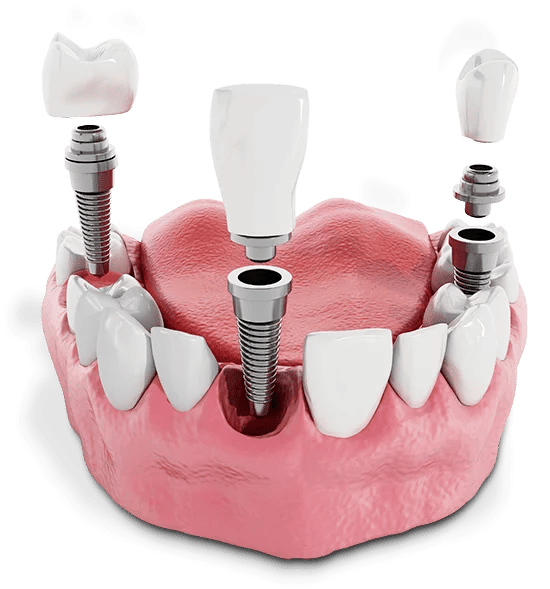
Single Tooth Implants or Multi-Tooth Implant Bridges are the best way to repair failing or missing teeth in a localized area.

A dental implant is a titanium screw that’s placed into your jawbone which serves as the foundation to replace a tooth or teeth.
There are 3 parts to a dental implant:
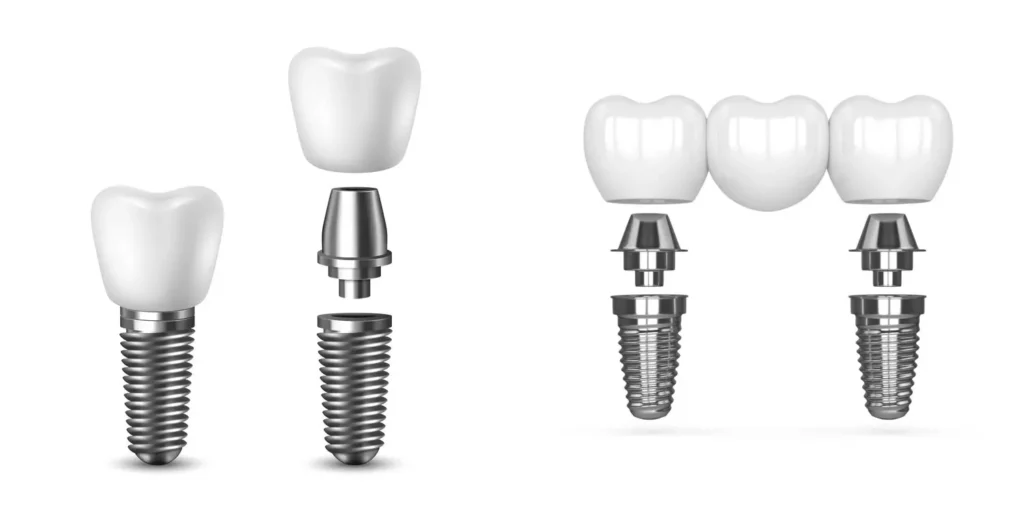

This pricing is the lowest in the area while also providing the best final result. We are able to achieve this by having a highly experienced dentist who performs the entire procedure from start to finish along with a highly trained in-house dental lab technician. They have performed this procedure from start to finish together countless times.
Replaces 1 tooth
Includes the implant body, abutment, and crown
Does not include cost of extraction/bone graft if necessary
Replaces 3 teeth
Includes 2 implant bodies, 2 abutments, and 3 unit bridge
More cost effective than placing 3 individual implants
Does not include cost of extraction/bone graft if necessary
Dental Implants are an important investment in yourself. Having the option to break this investment down into monthly payments can help make these life-changing services more accessible and easier to fit into your budget. We work with a variety of financing providers that offer payment plans to cover either all or part of your dental implant procedure. This is a great option for all patients, especially those who are on a fixed income. With these flexible financing options, you can enjoy the benefits of a healthy, beautiful smile without breaking the bank.
Contact us to learn more about our financing options and schedule your FREE Consultation with Dr. Logan today!
Click here for cost of single tooth implants and bridges.
Implants at our office range from $4000-5000. It is $2000 to place an implant, $2000 for an implant crown, and $500-$1000 for bone grafting if it is needed.
Yes, at our office we perform IV moderate sedation, but in some instances we recommend an anesthesiologist to perform general anesthesia.
The process typically takes around 6 months from start to finish.
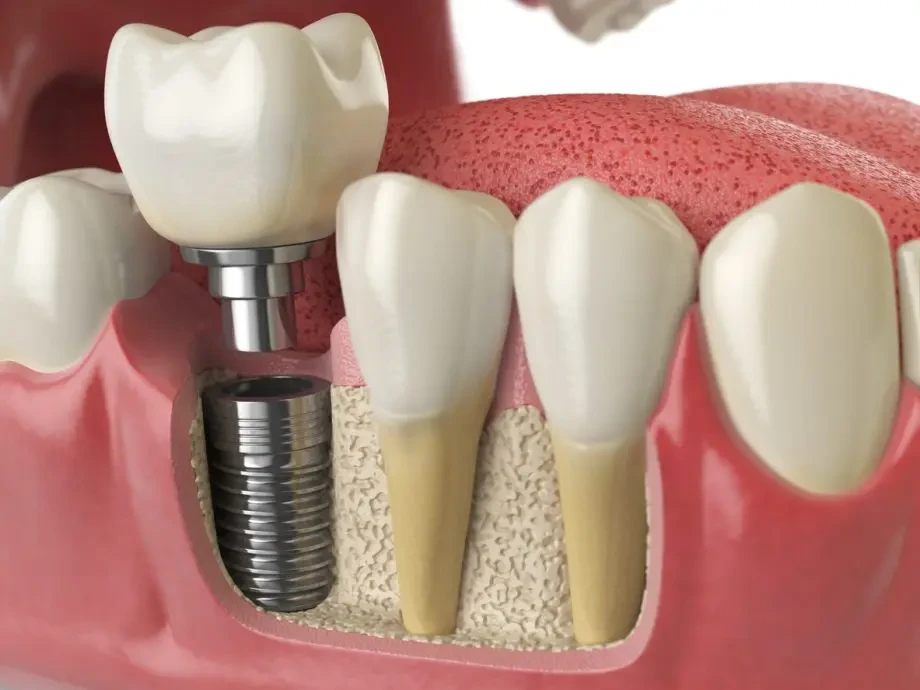
Our patients are our biggest fans. Here are a few highlights from our public reviews.
Monday
8:00AM – 4:00PM
Tuesday
8:00AM – 4:00PM
Wednesday
8:00AM – 4:00PM
Thursday
8:00AM – 4:00PM
Friday
8:00AM – 4:00PM
Saturday
CLOSED
Sunday
CLOSED
We are happy to help you book an appointment or answer your questions. Please fill out our contact form and we will get back to you shortly!
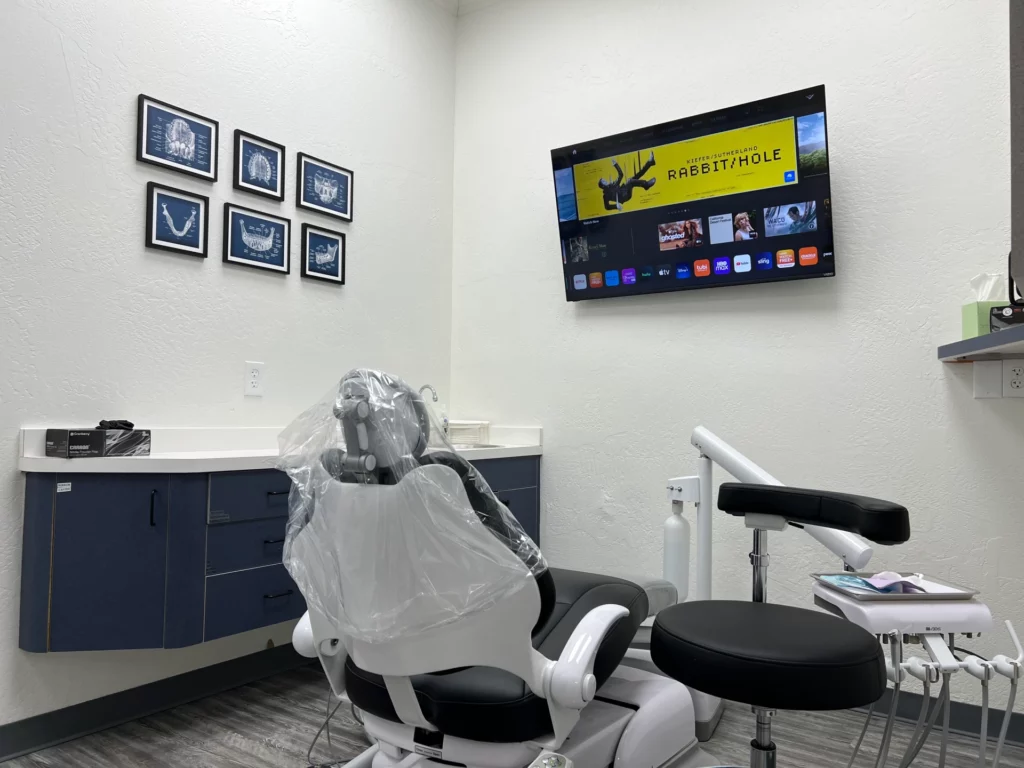

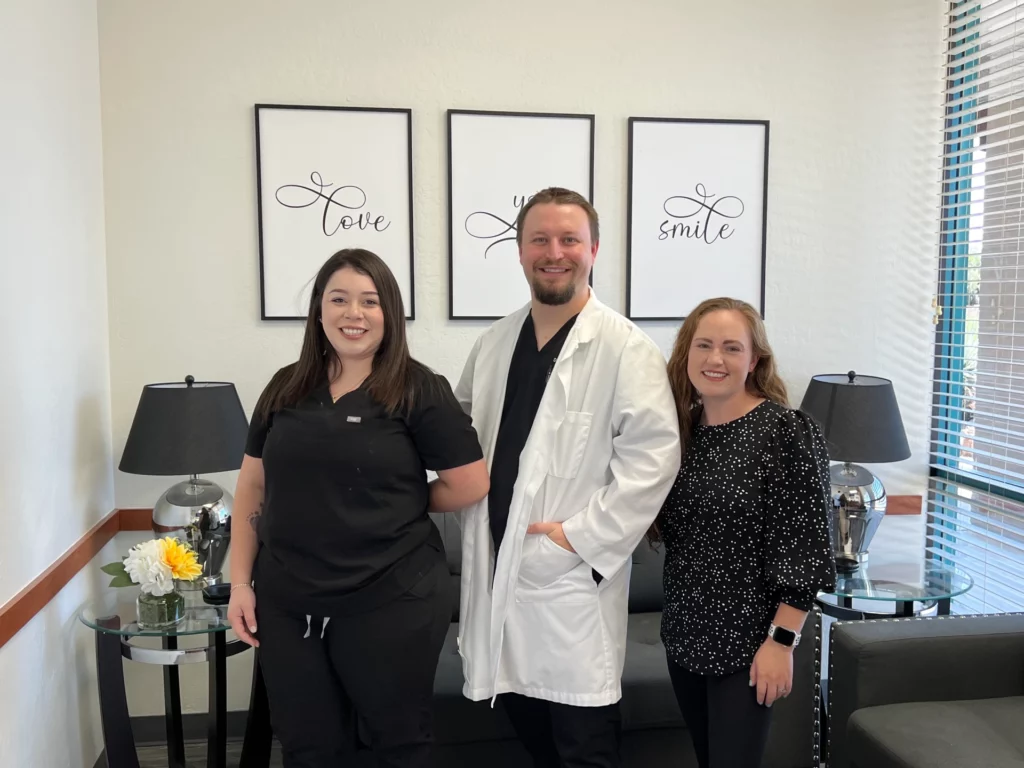
Our implant success rates are so predictable that we offer an unprecedented 5-year implant warranty (some conditions and limitations do apply).
Your implant will work, or we will remove it and replace it – absolutely free.
Many surgeons will offer this courtesy, but few will do so in writing. In addition, in those rare instances when an implant does fail, corrective surgery such as bone and/or soft tissue grafting is often needed. If we have to remove one of our implants, not only will we replace it absolutely free, but any corrective procedures required will also be performed at no cost.
Although uncommon, implants can develop problems. This includes loss of bone or gum because of uncontrolled gum disease, overload, or other reasons.
*Conditions and limitations
If an implant fails to integrate we will replace it at no cost, one time only. An annual implant examination including X-rays and regular dental cleanings (every 6 months minimum) in our office is an absolute requirement for this warranty to apply. This warranty does not apply to smokers (including vapers) or to persons who have, or who develop, an uncontrolled systemic health problem, such as, but not limited to, diabetes, autoimmune disorders, severe osteoporosis or any condition requiring long-term steroid use. This warranty does not apply if an implant has failed due to an accident (car accident, etc.). If smoking or a medical condition is suspected as the cause of implant failure or other complication that requires treatment, a medical examination and appropriate blood tests will be required for this warranty to apply.